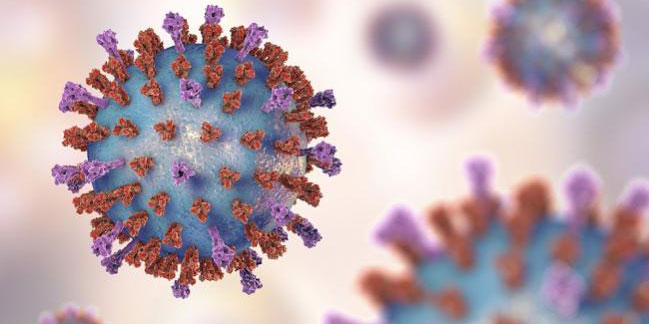Nightshade Veggies: Good or Bad for You?
Jan 13, 2024
For years, we've heard a mix of information about nightshade vegetables, which are a diverse group of plants from the Solanaceae family. While some swear by their benefits, others suggest they might not be so great for everyone. But how do you know if they're bad for you? Here's a comprehensive look.
What Are Nightshade Vegetables?
Nightshade vegetables are part of the Solanaceae plant family. This family comprises over 2,000 species, but only a few are consumed as part of our regular diet. Common examples include:
- Tomatoes
- Eggplants (aubergines)
- Potatoes
- Bell peppers
- Hot peppers
Why Are They Controversial?
Nightshade vegetables have held a place on our dining tables for centuries, enriching our diets with their unique flavors and nutritional profiles. However, in recent times, they've come under scrutiny, leading to debates about their potential health effects. But what sparked this sudden interest and controversy?
Presence of Alkaloids
One of the primary reasons nightshades are debated is their alkaloid content. Alkaloids serve as natural insect repellents for these plants, helping to protect them from pests. While they have a purpose in the plant's defense mechanism, these compounds can be toxic if consumed in large quantities. Though the levels found in most nightshades are generally considered safe for consumption, the potential risk posed by higher intake has raised concerns.
Autoimmune Concerns
Another point of contention stems from speculations around nightshades and autoimmune disorders. Some researchers and health professionals theorize that these vegetables might aggravate symptoms in individuals with certain autoimmune conditions. Although the evidence isn't conclusive, it's a topic of ongoing investigation and discussion in the medical community.
Digestive Upsets
Anecdotal reports have emerged over the years of some people experiencing digestive disturbances after indulging in significant amounts of nightshade vegetables. These reports, combined with the broader concerns about alkaloids, have led to discussions on whether these veggies might not be suitable for everyone, particularly in large quantities.
Potential Benefits of Nightshade Vegetables

While there have been controversies surrounding certain vegetables, it's essential to remember the other side of the coin. These very vegetables are nutrient powerhouses that can significantly contribute to our overall well-being.
- Rich in Vitamins: While there have been controversies surrounding certain vegetables, it's essential to remember the other side of the coin. These very vegetables are nutrient powerhouses that can significantly contribute to our overall well-being.
- Antioxidant Properties: Some vegetables, like tomatoes and bell peppers, are celebrated for their remarkable antioxidant properties. Antioxidants are vital in combating the damaging effects of free radicals in our bodies, thereby protecting our cells from premature aging and diseases.
- Dietary Fiber: Lastly, the dietary fiber found in these vegetables deserves special mention. Fiber not only facilitates smooth digestion but also plays a pivotal role in heart health. Consuming fiber-rich vegetables can help in reducing cholesterol levels, ultimately promoting a healthier cardiovascular system.
Should You Avoid Them?
Not necessarily. Most people consume nightshade vegetables without any adverse effects. But, if you have certain health concerns or notice specific symptoms after eating them, it might be worth reconsidering.
- Listen to Your Body: If you suspect a vegetable might be causing digestive upsets or joint pain, try eliminating it from your diet temporarily and see if symptoms improve.
- Consult a Specialist: Particularly if you have autoimmune diseases or chronic joint pain.
- Test and Challenge: Eliminate all nightshades from your diet for a month and then reintroduce them one by one. This method helps identify which, if any, cause problems.
Nightshade Vegetables vs. Non-Nightshade Vegetables
Nightshade Vegetables | Benefits | Non-Nightshade Vegetables | Benefits |
Tomatoes | Rich in lycopene & vitamin C | Broccoli | Vitamin K & fiber |
Eggplants | Fiber & manganese | Carrots | Beta-carotene & vitamin A |
Potatoes | Vitamin C & potassium | Lettuce | Low in calories, hydration |
Bell peppers | Vitamin C & antioxidants | Spinach | Iron & calcium |
Hot peppers | Metabolism boost, capsaicin | Cucumbers | Hydration & vitamin K |
FAQs on Nightshade Vegetables
What are nightshade vegetables?
They're a group of veggies from the Solanaceae plant family. Common ones include tomatoes, eggplants, potatoes, and bell peppers.
Why do some people say nightshades are bad?
Some folks believe they can cause problems for those with autoimmune diseases or specific allergies because of the alkaloids they contain.
How do I know if nightshade vegetables are causing me problems?
Listen to your body. If you feel odd after eating them, consider cutting them out for a bit to see if things get better. It's also a good idea to chat with a doctor or nutritionist.
Can I replace nightshade vegetables with other veggies in my diet?
Of course! There are many non-nightshade veggies like broccoli, carrots, and spinach that are super nutritious.





